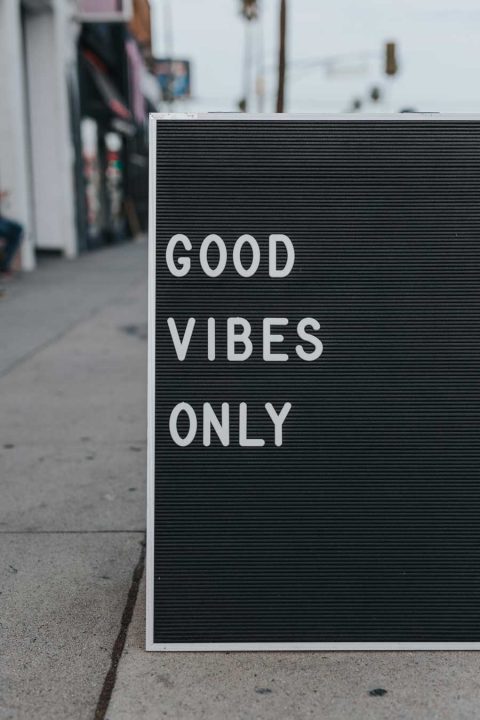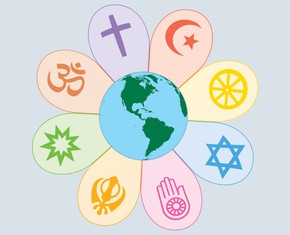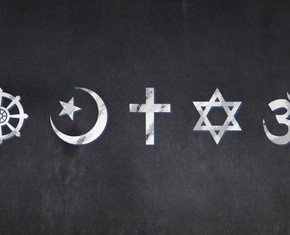The views expressed in our content reflect individual perspectives and do not represent the authoritative views of the Baha'i Faith.
A few days ago, I came across an article discussing the ramifications of something called “toxic positivity.” Have you heard this term? It made me curious, and I wanted to know more.
I must admit, my first response to the concept was surprise, because my parents raised me to confront hardship with positivity as a sign of resiliency. I have found a lot of comfort in focusing on the positive, most of which I attribute to being a Baha’i, which led me to wonder if religion, as a whole, could be considered a promoter of toxic positivity, and if so, why?
What is “Toxic Positivity”?
“Toxic positivity” seems to be a relatively new term with many definitions, but based on my understanding I would define it as, “When someone ignores feelings of discomfort through avoidance by overriding them with platitudes.”
For example, you’re probably familiar with these kinds of remarks: “Don’t worry, be happy” or “Good vibes only.” Those common platitudes some would define as a “toxic” spin on positivity. Why toxic? Positivity seems to be defined as toxic when it skews towards the extreme and dismisses one’s feelings of his or her current experience.

I would also suggest that toxic positivity can add to feelings of unworthiness, which is never helpful. What is helpful, and necessary, is to acknowledge our feelings, and to sit with them in discomfort. Sitting in discomfort does not mean dwelling in self-pity. Self-pity is the feeling of getting stuck in an emotion, whereas sitting in the discomfort of an emotion is the active process of teaching your body and mind to work together so you change unhelpful patterns of behavior.
Positivity is hopefulness in action. When I am feeling positive I’m not ignoring my uncomfortable feelings, I am simply not letting them decide my future.
Religion’s Role
As a Baha’i, I believe that all religion has had the same purpose throughout time: to support the growth of humanity. Growing can cause discomfort and pain, though, so it’s only natural that we would feel aversive to the growth process, believing it to be toxic. Many religious texts offer us messages of positivity. I’m always uplifted by this passage from Abdu’l-Baha:
Nothing is impossible to the Divine Benevolence of God.
If you desire with all your heart, friendship with every race on earth, your thought, spiritual and positive, will spread; it will become the desire of others, growing stronger and stronger, until it reaches the minds of all men.
Do not despair! Work steadily. Sincerity and love will conquer hate.
This passage provides an example for me to learn how to focus on positivity as part of the growth process. If I am sad – a normal, human response to a difficult circumstance – it can be really helpful to remember that I am not alone, that God, through His benevolence, is my best friend, and that nothing is impossible. It empowers my ability to call on the strength of my rational soul by shifting my attention from the difficulties in life to God’s love for me.
Religion as a Tool
When a person uses religion as a tool to suppress or negate someone else’s experience, I believe this can turn religion’s positivity toxic. Worse, when religion is used by an institution toxic positivity can become a cultural phenomenon. Based on my personal experience, I would say that religion, in and of itself, does not promote toxic positivity, but at times individuals do, whether intentionally or unintentionally.
What can we do to change that dynamic? The Baha’i teachings ask us to love one another and to simply listen to and truly hear each other’s lived experience. Baha’u’llah, the prophet and founder of the Baha’i Faith, gave this advice to everyone:
If ye meet the abased or the down-trodden, turn not away disdainfully from them, for the King of Glory ever watcheth over them and surroundeth them with such tenderness as none can fathom except them that have suffered their wishes and desires to be merged in the Will of your Lord, the Gracious, the All-Wise. O ye rich ones of the earth! Flee not from the face of the poor that lieth in the dust, nay rather befriend him and suffer him to recount the tale of the woes with which God’s inscrutable Decree hath caused him to be afflicted.
















Comments
Sign in or create an account
Continue with Googleor